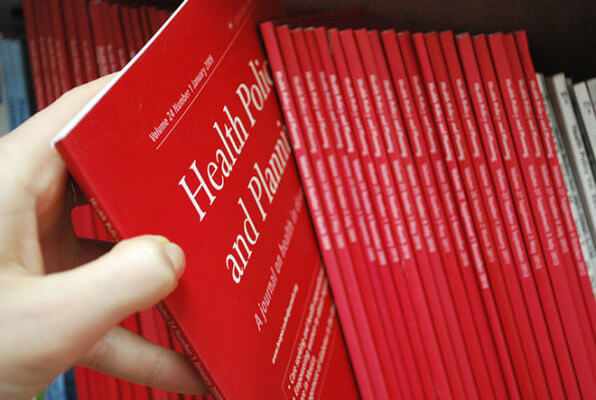Health Policy and Planning published an article Privilege and inclusivity in shaping Global Health agendas. CIF director George Gotsadze co-authors the paper together with Kabir Sheikh, Sara Bennett and Fadi el Jardali.
The article discusses lack of inclusivity in Global Health and possible actions to promote inclusivity and diversity in the field.
“Northern voices dominate Global Health discussions. Of recent Lancet Commissions, excluding representatives from international organizations, 70% of commissioners on the Women and Health commission came from the global North, and likewise, 71% of the Health and Climate Change commission, 72% of the Global Surgery commission and 73% of the Global Health commission (Lancet 2016). Only two out of the 16-member Board of Directors of the Consortium of Universities of Global Health come from the global South (CUGH 2016). No current or past president and only one current member of the World Health Summit’s scientific committee is from the global South (WHS 2016). Only one of the 17 advisory board members of the journal Global Health Governance is based in a low/middle income country (LMIC) institution (GHG 2016).
Only 15% of the world’s population lives in high-income countries. Yet Global Health conferences continue to be dominated by invited Northern speakers and important committees on Global Health composed mainly of Northerners. The words of a few from the global North wield a disproportionate power that carries …”
The full text is downloadable here.
 The study was a part of a multi-country coting and financing study of routine immunization program, supported by the Bill and Melinda Gates Foundation.
The study was a part of a multi-country coting and financing study of routine immunization program, supported by the Bill and Melinda Gates Foundation. An International peer reviewed Journal Vaccine, published an article Costs of routine immunization services in Moldova: Findings of a facility-based costing study. Authored by experts from the Curatio International Foundation.
An International peer reviewed Journal Vaccine, published an article Costs of routine immunization services in Moldova: Findings of a facility-based costing study. Authored by experts from the Curatio International Foundation. This study documented that after 3 years of the MIP implementation the program successfully managed to reduce financial access barriers for the MIP covered individuals by delivering greater financial benefits to the poorest. Although the MIP did not facilitate growth in health care utilization for all beneficiaries, positive trends were observed among capital city residents.
This study documented that after 3 years of the MIP implementation the program successfully managed to reduce financial access barriers for the MIP covered individuals by delivering greater financial benefits to the poorest. Although the MIP did not facilitate growth in health care utilization for all beneficiaries, positive trends were observed among capital city residents.